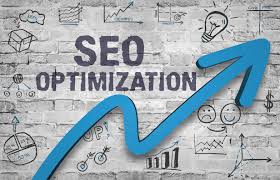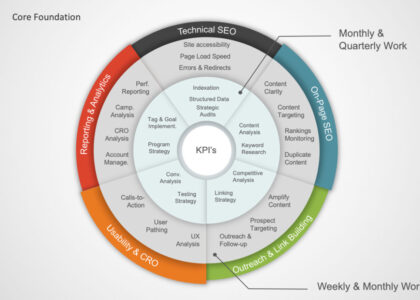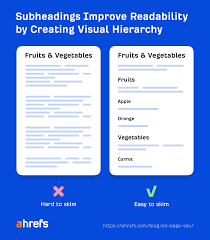The Importance of Website SEO
Search Engine Optimization (SEO) is a crucial aspect of any website’s success in the digital world. It involves strategies and techniques that help your website rank higher in search engine results, making it more visible to potential visitors.
Why is SEO Important?
Increased Visibility: By optimising your website for search engines, you improve its chances of appearing on the first page of search results. This increased visibility can drive more organic traffic to your site.
Better User Experience: SEO involves improving various aspects of your website, such as site speed, mobile-friendliness, and content quality. These improvements not only help with search engine rankings but also enhance the overall user experience.
Higher Conversion Rates: When your website ranks higher in search results, it attracts more relevant traffic. This targeted audience is more likely to convert into leads or customers, leading to increased sales and revenue.
Key SEO Strategies
Keyword Research: Identifying relevant keywords that users are searching for can help you create content that aligns with their queries and improves your chances of ranking well in search results.
On-Page Optimisation: Optimising meta tags, headings, images, and content on individual web pages can make them more attractive to search engines and users alike.
Quality Content: Creating high-quality, relevant, and engaging content not only attracts visitors but also encourages other websites to link back to yours, boosting your site’s authority and credibility.
Conclusion
Website SEO plays a significant role in determining the success of your online presence. By implementing effective SEO strategies, you can improve your website’s visibility, attract more traffic, and ultimately achieve your business goals in the competitive digital landscape.
Top 6 Essential SEO Tips to Boost Your Website’s Performance
- 1. Conduct keyword research to identify relevant search terms for your website.
- 2. Optimise meta tags, including title tags and meta descriptions, with targeted keywords.
- 3. Create high-quality, valuable content that is engaging and relevant to your target audience.
- 4. Improve website loading speed for better user experience and SEO performance.
- 5. Build quality backlinks from reputable websites to increase your site’s authority.
- 6. Regularly monitor and analyse your website’s performance using tools like Google Analytics to make data-driven SEO decisions.
1. Conduct keyword research to identify relevant search terms for your website.
Conducting keyword research is a fundamental step in website SEO that involves identifying relevant search terms for your website. By understanding what keywords users are searching for, you can tailor your content to align with these queries and improve your chances of ranking well in search engine results. Keyword research helps you target the right audience and ensures that your website is optimised to attract organic traffic interested in your products or services. This strategic approach not only enhances your site’s visibility but also increases the likelihood of driving valuable traffic that can lead to higher conversion rates and business success.
2. Optimise meta tags, including title tags and meta descriptions, with targeted keywords.
To enhance your website’s search engine optimisation (SEO) performance, it is essential to optimise meta tags, such as title tags and meta descriptions, by incorporating targeted keywords. By strategically placing relevant keywords within these meta tags, you can improve the visibility and relevance of your web pages in search engine results. This practice not only helps search engines understand the content of your pages better but also entices users to click through to your website by providing a clear and compelling summary of what they can expect to find.
3. Create high-quality, valuable content that is engaging and relevant to your target audience.
Creating high-quality, valuable content that is engaging and relevant to your target audience is a key tip for effective website SEO. By offering content that resonates with your audience’s interests and needs, you not only attract more visitors to your site but also keep them engaged and encourage them to explore further. Quality content not only helps improve your search engine rankings but also establishes your website as a credible source of information, ultimately leading to increased traffic and conversions.
4. Improve website loading speed for better user experience and SEO performance.
Improving website loading speed is a critical tip for enhancing user experience and SEO performance. A faster-loading website not only provides visitors with a smoother and more enjoyable browsing experience but also signals to search engines that your site is well-optimised and user-friendly. By prioritising website loading speed, you can reduce bounce rates, increase user engagement, and boost your search engine rankings, ultimately driving more organic traffic to your site.
5. Build quality backlinks from reputable websites to increase your site’s authority.
Building quality backlinks from reputable websites is a crucial tip in website SEO. By establishing links from trusted sources, you can enhance your site’s authority and credibility in the eyes of search engines. These backlinks act as signals of endorsement, indicating to search algorithms that your content is valuable and relevant. As a result, your website is more likely to rank higher in search results, attracting organic traffic and improving overall visibility online.
6. Regularly monitor and analyse your website’s performance using tools like Google Analytics to make data-driven SEO decisions.
Regularly monitoring and analysing your website’s performance using tools like Google Analytics is essential for making informed and data-driven SEO decisions. By tracking key metrics such as traffic sources, user behaviour, and conversion rates, you can gain valuable insights into how your website is performing and identify areas for improvement. This data-driven approach allows you to refine your SEO strategies, optimise content, and enhance user experience to ultimately boost your website’s visibility and effectiveness in reaching your target audience.




